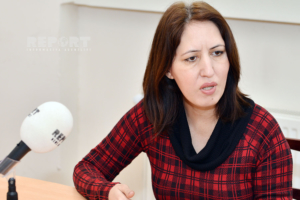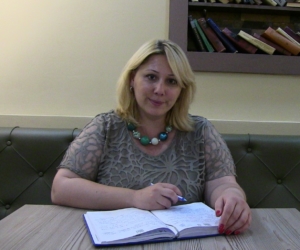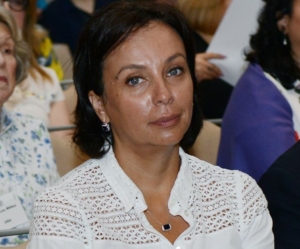Intrafamilial marriages in Azerbaijan: a dangerous tradition
“Traditions form not a single individual, but the family as a whole. Children are a secondary matter. It’s possible that a child will be sick. It’s possible that the groom and bride aren’t a match genetically or erotically. That’s not considered. But the family…! We know that traditions retain the family. The health of the family is placed above the health of the individual.”
This quote is from a film called ‘Secrets of Marriage’ which was shot 11 years ago and belongs to Hasan Guliyev, a famous philosophy professor in Azerbaijan speaking about marriages between cousins. In Azerbaijan, as in some countries across the world, such marriages are wide-spread, and for many years this phenomenon was not considered a problem. It became an issue when it was discovered that there was a high rate of a rare genetic disease called Thalassemia in Azerbaijan. Doctors believe that it is namely inter-family marriages that have given rise to this problem.
There are no statistics for inter-family marriage in Azerbaijan, said the State Statistics Committee.
In Azerbaijani society, there are varying opinions on this issue: some don’t see any problem whatsoever in inter-family marriages, others insist on prohibiting them (as in many states in the USA, for example). Here below we tried to figure out what are the reasons for the popularity behind such marriages, and what the possible consequences may be.
Reyhan Akhmedova
“When my mother found out that my cousin was in love with me, she said that she would rather marry me to someone else. I resisted. I loved him quite a bit. And I was also scared that if I were to marry someone else, then he might dump me.”
45 years ago, Reyhan married her cousin with whom she was very much in love. Their family, to whom were born three girls, lived happily for several years. Reyhan Akhmedova says that when she was getting married, she had no idea that marrying one’s cousin could lead to possible illnesses in children.
“There was no such understanding then. And even today I’m not sure I believe it. This happens only very rarely.”
When her older daughter was in 10th grade, her 37-year-old husband died of a stroke.
“After his death, I had several suitors, but I didn’t remarry. After he passed away, I used to leave out an extra plate on the dinner table for many years, thinking that wait! He’ll come any moment…”
Reyhan Akhmedova said with tears in her eyes that she still dreams of her husband.
“I never regretted marrying my cousin. And I never condemned inter-family marriages. One of my daughters I married off to a distant relative. I would have married her off even if she wanted to marry a close relative.”
This 65-year-old woman, who had to raise her daughters on her own and marry them off, says that she is also ready to marry off her grandchildren in inter-family marriages, if they happen to fall in love with a relative.
Nurana Hajiyeva
“Actually, I had a bad opinion of inter-family marriages. In 2006, my cousin arrived in Azerbaijan. He had been living since his childhood in Kazakhstan. He was rather foreign to me – not a cousin. We had never met before. After a year, when we wanted to marry each other, my father was categorically against the idea. He said that there is a high probability that we will have sick children. I didn’t listen to him. Moreover, the mother of my cousin was of a different nationality. My husband and I hoped that our children would be born healthy.”
One year later, she gave birth to a daughter. And another year and a half later, after becoming unexpectedly pregnant, she had a son. Both children were diagnosed with cerebral palsy.
“In fact, up until this very day we don’t know whether the illness of our children has to do with the fact that we are cousins. Both times I had a virus in my blood while I was pregnant with them. I didn’t get cured fully. We can call this ignorance. But at least I finished university. The last time, the doctors told us that in order to diagnose the illness and find out the exact reasons for its manifestation, we had to do a genetic analysis. We didn’t have the money for that.”
33-year-old Nurana Hajiyeva says that her husband can’t work because he is a citizen of Kazakhstan and it is difficult to take care of the two children both psychologically and materially.
“My daughter is nine, and my son is seven years old. Of course it’s not easy to bring up two ‘special’ children. They are behind their peers in both their psychological and physical development. They want to play with their peers but their physical disabilities do not allow them to do so. I have to carry them in my arms. But, thank god, they have their reason and logic. They eat by themselves and also get dressed.”
Today, love for Nurana feels like a transitory feeling. Though she has never heard the words ‘I told you so’ from her father, her conscience tortures her that she didn’t listen to him in time. She calls upon other women who are preparing to marry a relative to be attentive to this issue.
“I don’t think that our people listen to such prohibitions. But I’d like for this to be regulated by law. At minimum, education work, to inform people. When we got married, there was no law about having to get tested before getting married. If only there had been such a law back then… Girls who are getting involved in such marriages should pay attention to these analyses. Instead of suffering in the future, they should know what they are getting into.”
The opinion of doctors
Azerbaijani doctors are in agreement with both local and doctors from abroad as to the potential harm that may come of inter-family marriages.
The head doctor of Municipal Policlinic No. 1, Kubra Jabbarova:
“The decision of the Cabinet of Ministers in 2015 on obligatory medical testing of citizens wishing to marry was made in order to avoid the consequences of such marriages. Analyses are given. If both are carriers of a genetically inherited disease, then the young couple is notified of this. The law does not forbid anything categorically, but couples should be ready for the illness to manifest in their children. Inter-family marriages do not lead to good things, they extend the lifespan of an inherited disease.”
Two years have passed since the day of the entry into force of the law on obligatory medical testing for couples wishing to marry. Of the 279 383 people that have gone through the tests since that time, 11 773 were carriers of Thalassemia.
The head doctor of the Republican Center of Thalassemia, Jeykhun Mamedov:
“Thalassemia is an inherited blood disease. It is caused by a decrease in the synthesis of polypeptide chains, which are apart of hemoglobin in human blood. Genes which cause this are recessive, and due to this, the reason behind the illness in most cases are interfamily marriages. From the moment the center was founded in 2009, there were 3 045 patients registered with the disease.”
For comparison, there are only 300 000 people with Thalassemia in the world. That is, those registered with the disease in Azerbaijan make up an entire percent of those afflicted with the disease.
However, in recent years the numbers have been decreasing. From 2012 – 2016, the numbers have steadily decreased from 94 newly registered cases to 55:
2012 — 94
2013 — 78
2014 — 75
2015 — 63
2016 — 55
Genetics explain everything
 Creator and manager of the educational portal ‘Evrim Tree’, biologist and graduate of Texas Technical University (USA) Chaghri Mert Bakirji explained to JAMnews why the risks of giving birth to a sick child in inter-family marriages is higher:
Creator and manager of the educational portal ‘Evrim Tree’, biologist and graduate of Texas Technical University (USA) Chaghri Mert Bakirji explained to JAMnews why the risks of giving birth to a sick child in inter-family marriages is higher:
“The closer relational ties you have with a person, the more similar are your genes. This means that the genes of your child will be two copies (one from the father, one from the mother) of similar genes. For healthy genes, this is not a problem. If you marry a non-relative, these healthy genes will be given to your child. The problem is with genes which can lead to illness. The majority of them are recessive illnesses. What does this mean?
If a child has just one copy of this gene, he will not be sick. But if he has the same gene from both his mother and his father – that is to say, if the child has both genes – then he will inherit this disease.”
“For that reason, when relatives decide to get married, the probability of transferring this gene to the child grows. The mother and father (if they are relatives) carry one and the same gene, and for that reason the probability of receiving the recessive gene grows to 50 percent. The probability that the child will be born sick then evens out to 25 percent.”
Bakirji says that if one person does not have the gene for one or another illness, but the other does have it, then the likelihood of inheriting the illness itself is practically zero.
“One more thing. The 25% probability of being sick that I told you about before may seem small to you. But I want to direct your attention to the fact that the probability grows from 0 to 25. That means that one in four children will be born sick.
“It’s also important to note that this analysis is meant to discover the presence of only one gene and one illness. Taking into account that there are dozens of these diseases, the probability of discovering one of these sicknesses in children whose parents are relatives is very high. In some cases the probability can be as high as 90 percent.
“And for that reason, inter-family marriages should be avoided. But if, despite everything, such a marriage is to be performed, then a genetic analysis and the care of a doctor is necessary. As for illnesses that can appear as a result of such marriages, then we can list: cerebral palsy, deafness, cystic fibrosis, hemophilia, pediatric diabetes, schizophrenia and another 15-20 diseases.”
Customs and traditions
Sociologist Sanubar Heydarova says that inter-family marriages have their origin in the times of primitive communal systems.
“In those times, it was considered more acceptable to form a family within the community. Well-to-do families did not want to spread their wealth outside of the family. In some communities, it’s still like that. For example, in some settlements on the outskirts of Baku, societies refuse to marry off their daughters to men from outside the village.
The desire of poor families for such marriages is connected to the desire to retain traditions which have been handed down to them by the older generations. They do this often without thinking and without understanding the reasons for it.
“Often young people may have feelings for their cousins because they are largely in touch mostly with their relatives. If there were proper socialization outside the home, this would not happen.”
Solving the problem
Experts say that, like with other similar issues, the solution to this problem can be found in educational work.

Representative of the State Committee for Family, Women and Children Issues, Aynur Veysalova, says that the Committee tries to bring information to people concerning issues that may arise as a result of inter-family marriages.
“We have different activities and projects. We create documentary films on the subject, and distribute materials in print as well. These are preventative measures. And then there are already families that have come together as a result of which children [with these genetic illnesses] have been born. We also work with them.
“In these families, divorces are not uncommon on the initiative of the man who blames the wife of having brought into the world a sick child and other problems. Over the course of a year we have dozens such families appeal to us for help. But we can’t interfere in the lives of other people and forbid them from doing certain things. Our aim is to inform them of the risks. We always recommend that young people pay attention to the results of medical tests before getting married.”
Prohibitions: how legal are they?
In 2016, marriages between close relatives were forbidden in Tajikistan at the state level. Could such a law come into effect in Azerbaijan? And, in general, would such a law be a violation of human rights? Lawyer Samira Aghayeva says no.
 “Research confirms that children born in inter-family marriages are often found to have inherited diseases. If one looks at this question from the point of view of the nation, then this is a strike against its health. And for that reason if a state decides to forbid such marriages, then I believe that this is right.
“Research confirms that children born in inter-family marriages are often found to have inherited diseases. If one looks at this question from the point of view of the nation, then this is a strike against its health. And for that reason if a state decides to forbid such marriages, then I believe that this is right.
“If we look at the European Convention on Human rights or any other international document, then we can see that human rights and freedom often have limits and exceptions.
“Despite this, I don’t think that inter-family marriages will be forbidden in Azerbaijan. Moreover, there’s another factor: that of corruption, which has polluted our country. Nothing prevents a person from giving a bribe to a doctor to ‘fix’ the results of an analyses, for example, in order to hide their illnesses from their future spouse.”
 The head of the press service of the Ministry of Health, Liya Bayramova, says that such a statement is unfounded in practice.
The head of the press service of the Ministry of Health, Liya Bayramova, says that such a statement is unfounded in practice.
“The presence of such illnesses cannot lead to forbidding certain marriages. Why should people change their results? We simply tell people about the illnesses they carry. And we urge them to get treatment.”



















